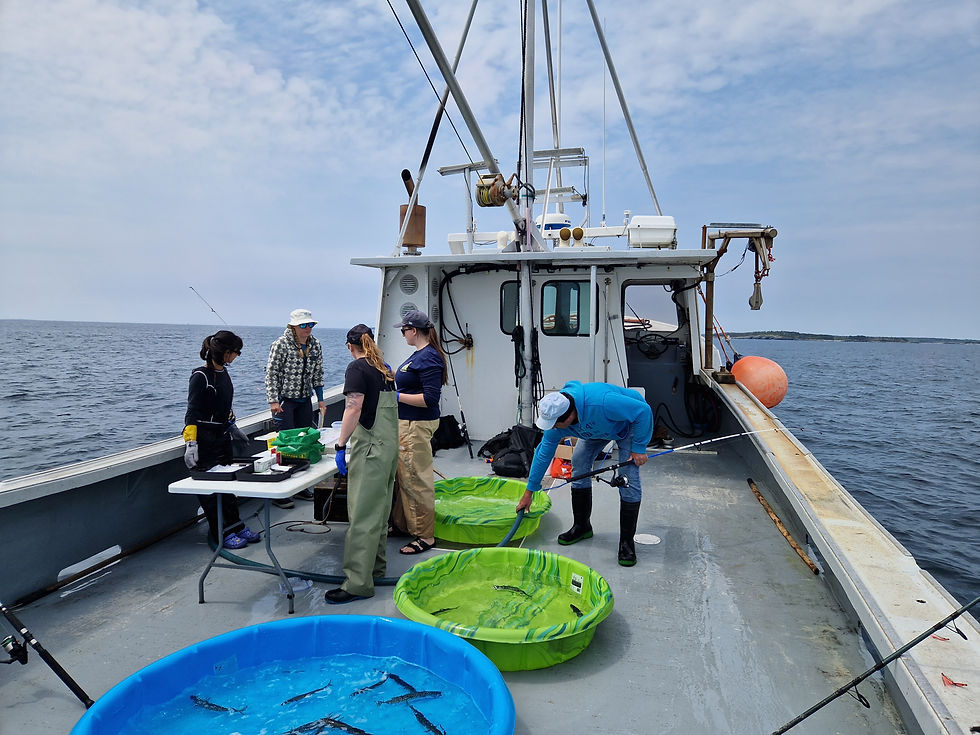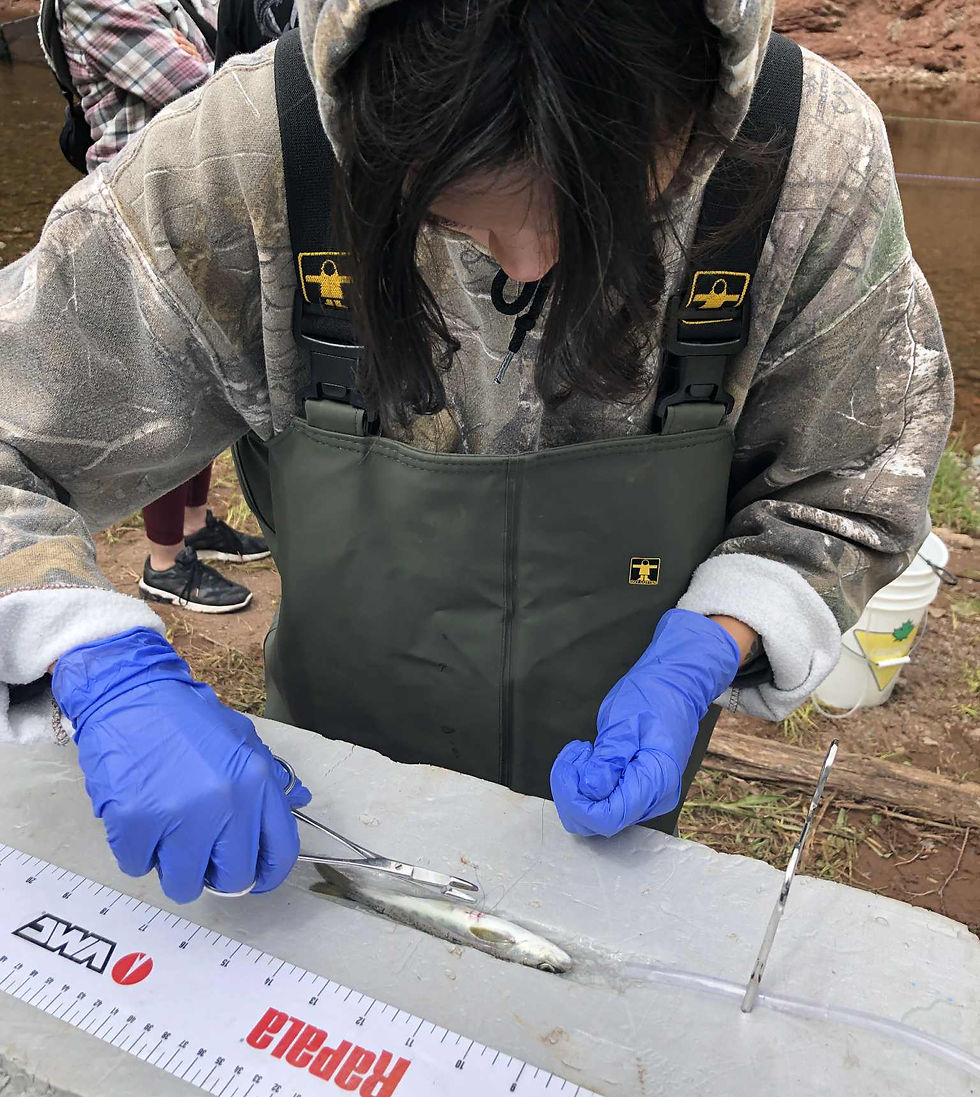Visiting Canada for workshop and fieldwork
- Lotte Dahlmo
- Aug 8, 2025
- 2 min read
Before summer, PhD students Saron Berhe and Erlend M Hanssen took part in the NoWPaS workshop, a five day international workshop for PhDs and Post-doctoral fellows researching anadromous salmonids. This year marked the workshop's 20th anniversary and was held in Halifax, Canada.


Saron and Erlend presented their PhD research for the group of PhD and Post-doctoral fellows, in addition to the key note speakers. Saron's PhD project is a part of the NICE project that investigates the movement and behaviour of three species in the high Arctic, in Svalbard: the Atlantic salmon, the Arctic charr, and the Pink salmon. Erlend's PhD project is a part of the RePRESS project where he investigates the movement of Atlantic salmon and potential conflicts with one of their predators, the Eurasian otter whose populations are increasing again in Norway.

Saron and Erlend spent some inspiring days connecting with other early-career researchers from around the world working on salmonid research. The workshop was packed with interesting discussions, research sharing, and ideas for future collaborations. The group also had the chance to explore some of Halifax’s highlights together, making it a fun and productive trip all around!

After the workshop, Saron and Erlend were excited to join fieldwork with the Lennox Lab at Dalhousie University. Alongside master students from the lab, they joined one project that explores the lake movements of snapping turtles and Eastern painted turtles, another project that study the movement and behaviour of mackerel in the Bay of Fundy, and a third project that study the behaviour and residency time of salmon smolts in the Debert River.

All three projects used acoustic telemetry to track these species and address key research questions. Saron and Erlend got hands-on experience in the field and picked up new skills, tools, and techniques in acoustic telemetry along the way.







Comments